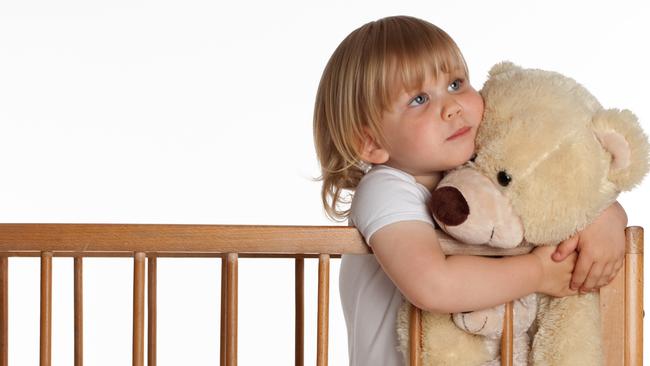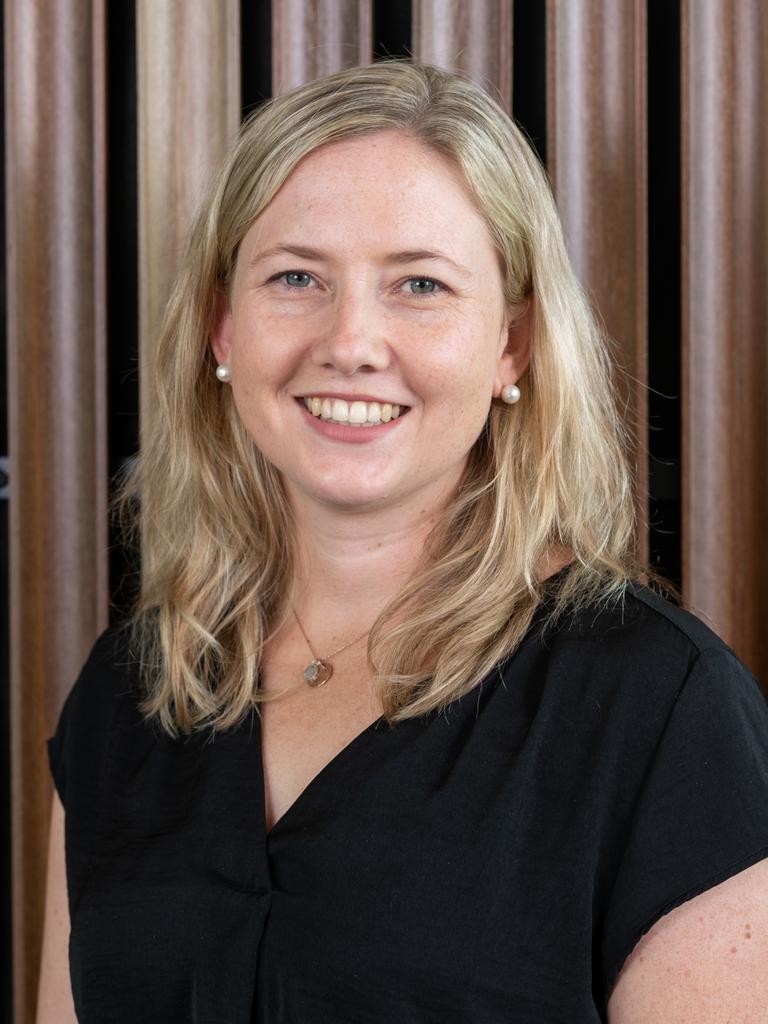One- to five-year-old Australian kids experiencing pandemic mental health impacts
Queensland researchers leading an international study on the effects of the COVID-19 pandemic on the mental health of children aged one to five have made some grim findings.
QLD Coronavirus News
Don't miss out on the headlines from QLD Coronavirus News. Followed categories will be added to My News.
Almost one in five very young Australian children have experienced disruptive behaviour, disturbed sleep or symptoms of anxiety or depression amid pandemic restrictions, a survey suggests.
The online questionnaire, dubbed COVID-19 Unmasked, surveyed almost 1000 Australian families, half of them in Queensland, to explore the mental health impacts of the once-in-a-century health crisis on children aged one to five.
One parent’s heartbreaking account told of their three-year-old son playing cars and describing one of the vehicles as an ambulance “taking all the dead people to hospital because of the virus”.
QLD PUBLIC MENTAL HEALTH SERVICES UNDER STRAIN FROM TEENAGE REFERRALS
EXPECTED SUICIDE SPIKE WITH PANDEMIC HAS SO FAR NOT HAPPENED: DATA
Another recalled their four-year-old daughter telling her dolls and teddies they were in trouble for not washing their hands properly. The toys were also advised they were not allowed to go to kindergarten because “it has coronavirus”.

In a separate family, the researchers were told of a five-year-old boy who plays an imaginary end of the world game where “everyone was dying”.
Lead researcher Dr Alex De Young, a clinical psychologist, said the questionnaire indicated up to 10 per cent of children may benefit from mental health support to help them recover from their pandemic experiences.
She said children who had lived through disasters, such as the 2019-20 bushfires, or a traumatic event, such as painful medical treatment, and those that did not have many social supports, were more likely to struggle during the pandemic.
“If your children’s thoughts, feelings and behaviours are affecting their relationships and interfering with daily life, it’s a good idea to seek professional advice,” Dr De Young said.
She advised parents to limit children’s exposure to media but do not avoid talking about the pandemic altogether.
“One of our findings was that the children of parents who reported that they avoided talking about the virus were more confused or anxious,” Dr De Young said.
“Like adults, many children are upset about having their world disrupted. They may have misunderstandings or worries. It’s important to help them express their feelings and reassure them about the future.”
She said young children would cope best if they had physical comfort and reassurance, a set daily routine and age-appropriate discussions about the pandemic and what it meant for them.
The survey was completed during the easing of the first lockdown restrictions in Australia between May and July.
“The good news is that a lot of families have described positive experiences during this time and that 80 per cent of young children are showing signs of good mental health and emotional well being,” Dr Young said.
“Most children who have shown some emotional or behavioural changes, such as worries, clinginess, tantrums and regression in behaviours will bounce back from the pandemic experience with the right support from their parents and caring adults.”
Dr De Young said Australians living in major cities and university-educated parents with higher-than-average incomes were over-represented in the sample.

She said the researchers hoped to recruit more families with young children living in rural and remote areas and people from socially diverse backgrounds for the next stage of the survey, to be conducted in November and December.
Separate research probing the mental health of six to 17-year-olds during the pandemic is also ongoing.
The researchers from the Queensland Centre for Perinatal and Infant Mental Health Service are leading an international collaboration involving the US, Spain, Poland, the Netherlands, Scotland, Turkey and Greece with the results to be compared over time and across countries.
Dr Young said the mental health needs of babies and young children were often forgotten.
For more information about the results of the survey and to participate: childrens.health.qld.gov.au/covid-19-unmasked/
Children’s Health Queensland has prepared resources to help children through a variety of challenges, including the pandemic. They can be accessed at childrens.health.qld.gov.au/natural-disaster-recovery/
Lifeline: 13 11 14
Kids Helpline: 1800 55 1800 or kidshelpline.com.au

